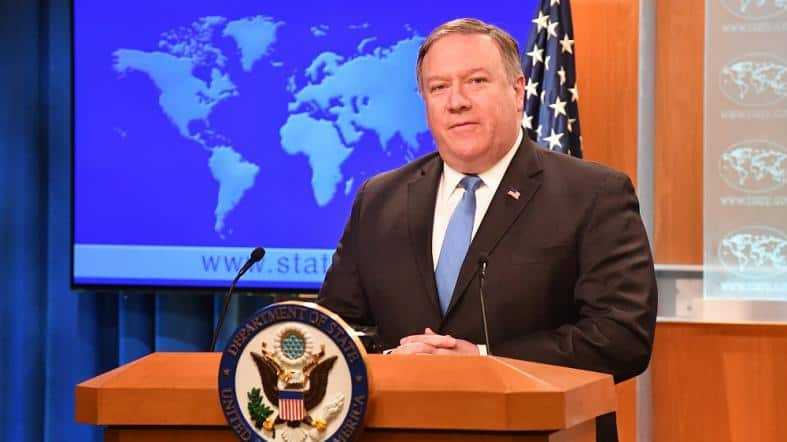On Iran, the U.N. proves its uselessness once again
Originally published by National Review
Given a recent surge in belligerent behavior by Iran and clear evidence that it cheated on the JCPOA, the deeply flawed 2015 nuclear deal, President Trump wants to reimpose U.N. sanctions that were lifted by the prior agreement. To do this, Trump wants to trigger a “snap-back” provision in a 2015 U.N. Security Council resolution. Security Council members — led by Russia, China, and America’s European allies — are blocking this effort because they prefer to appease Iran and protect the worthless nuclear deal.
On August 25, the Security Council’s current president refused to take up the U.S. snap-back proposal. By doing so, U.N. members are choosing to look the other way on a growing list of dangerous Iranian provocations and JCPOA violations. They also are validating President Trump’s conclusion that staying in the JCPOA and trying to rein in Iran through the U.N. is not in the national security interests of the United States.
When Israel revealed thousands of pages from Iran’s “Nuclear Archive,” obtained by Israeli intelligence in 2018, it proved Iran’s massive cheating on the JCPOA and ongoing covert work on nuclear weapons. This included undeclared facilities that Iran continued to use to pursue nuclear weapons after the announcement of the JCPOA. In response to Israel’s revelation, Iran razed one of these facilities and emptied another before IAEA inspectors could visit them.
Iran’s growing defiance of its nuclear-nonproliferation commitments led to tensions over the last year with IAEA officials and European states. In addition to refusing to cooperate with IAEA investigations of the Nuclear Archive revelations, between May 2019 and January 2020 Iran withdrew from all of its JCPOA commitments. Tehran is now enriching uranium over the agreement’s 300-kg maximum and producing enriched uranium that exceeds a 3.67 percent uranium-235 cap; it has resumed uranium enrichment at its underground Fordow facility and activated advanced uranium-enrichment centrifuges.
There was a new development on August 26 when the IAEA released a statement that Iran has agreed to allow IAEA inspectors access to two suspect nuclear sites identified in the Nuclear Archive. This appeared to be an Iranian concession to discourage Security Council members from snapping back sanctions. But the significance of that concession was outweighed by what was essentially an IAEA concession: The statement included language saying that the IAEA had no further questions for Iran or inspection requests beyond these two sites. Although the door was left open for future inspections in response to new information, it was clear that the IAEA did not plan to investigate the dozens of other nuclear sites revealed by the Nuclear Archive. The result was a huge win for Iran and another embarrassing retreat by the U.N.
Iran’s increasingly belligerent behavior, which almost led to war several times over the last year, gives the U.S. further reason to want to snap back U.N. sanctions. In June 2019, Iran shot down a U.S. drone in the Persian Gulf. Last September, drones fired from Iranian soil heavily damaged two Saudi oil facilities. In January, Iran fired 15 ballistic missiles at a U.S. airbase in Iraq.
On April 1, in response to intelligence that Iranian proxies were planning new attacks on U.S. forces in Iraq, President Trump warned in a tweet that Iran was planning a “sneak attack” on U.S. forces and pledged it would pay “a very heavy price” for such attacks. On April 22, after Iranian gunboats made “dangerous and harassing approaches” near American ships in the Persian Gulf, Trump announced that the United States would “shoot down and destroy” any Iranian ships that attempted this in the future. This was followed by a lull in Iranian harassment of ships in the gulf until August 12, when Iran attempted to seize a Greek-owned oil tanker in the Strait of Hormuz.
- The Iran nuclear negotiations: Why the humpty dumpty JCPOA should not be renewed - December 7, 2021
- Time to end diplomacy with Iran and admit Trump was right - December 3, 2021
- The US should walk out of the Iran nuclear talks - November 30, 2021

